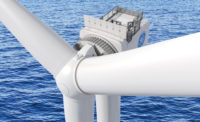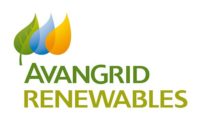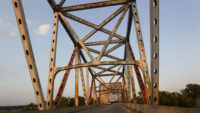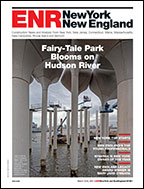With bids due soon for an estimated $8.7-billion tunnel project between New Jersey and Manhattan, the governor of New Jersey has announced tough new measures to control costs and potential fraud.
Seeking to "ensure transparency and accountability" in the effort to build a new commuter rail link under the Hudson River, New Jersey Gov. Jon Corzine (D) issued an executive order Oct. 7 that mandates more state oversight of "spending and contracting."
As the country's largest transit public works endeavor, the project will involve construction of two commuter rail tracks and require 21,000 feet of tunneling. Set for completion in 2017, it is also receiving funds from the American Recovery and Reinvestment Act.
The directive by Corzine, who is locked in a tight re-election campaign with Republican contender Christopher Christie, a former state's attorney, takes effect immediately. It orders the newly formed "independent" state comptroller's office to monitor contract procurement by a key project owner, New Jersey Transit. That agency has primary responsibility for management of project design, construction and equipment procurement, although other funding partners and overseers include the Port Authority of New York and New Jersey, the Federal Transit Administration, and the U.S. Transportation Dept.
New Jersey's budget and its politicians have been buffeted in the last several years by cost overruns and allegations of mismanagement and fraud in execution of the state's last megaproject, the court-ordered reconstruction and expansion of hundreds of public schools.
That program, which began in 2000 with close to $9 billion in funding, ran out of money two years ago and is struggling to complete work on its original list of schools, mostly located in poor urban areas of the state.
The problems forced the state to restructure the original management agency and cancel a number of projects.
The announcement by Corzine comes just as project construction procurement revs up. Price proposals from three joint venture teams prequalified to bid on the project's first big design-build contract, for tunneling work in Manhattan, are due Oct. 21.
The estimated $500-million contract includes construction of 19,000 ft of bored tunnels through hard rock and related work. Teams prequalified in June are ARC Constructors‹a joint venture of S.A. Healy, CCA Civil and Halmar International; a JV of Schiavone Construction Co., Skanska Civil and J.F.
Shea; and a JV of Judlau Contracting Inc. and Barnard of New Jersey Inc., a unit of Barnard Construction Co. Inc., Bozeman, Mont.
Those three teams and an additional joint venture of OHL and Tully Construction Co. were also prequalified Aug. 28 to proceed in the procurement process for the estimated $250-million, design-build contract to build the Palisades Tunnels on the New Jersey side. Price proposals for that work are due in mid-December. The scope includes twin bored tunnels, 5,200 feet long, through the Palisades rock formation to an access shaft in Hoboken. Teams are holding required outreach meetings for certified disadvantaged business enterprises (DBEs) between Oct. 14 and Oct. 29.
Pre-qualification for a third and final contract, estimated at $500 million and called the Hudson Tunnel contract, is set to begin later this year. It will involve construction of 7,500 ft of soft ground tunnels under the river.
Corzine's rail tunnel executive order authorizes the comptroller to review internal and external audits of the transit project to determine whether more oversight is needed to keep it "within budget" and requires "action plans" from New Jersey Transit if schedule and budget targets are or could be missed. It did not elaborate on new procurement enforcement steps, but a New Jersey Transit spokesman says tunnel project managers "have been working closely with the Office of Comptroller for more than a year" and are already providing similar information to the federal agency partners.
One industry source close to the tunnel effort says officials have not publicly cited the school construction problems as the genesis for the transit project's tight oversight. But "everyone is going overboard on prevention to avoid cost growth and any possible fraudulent activity," he adds.






Post a comment to this article
Report Abusive Comment